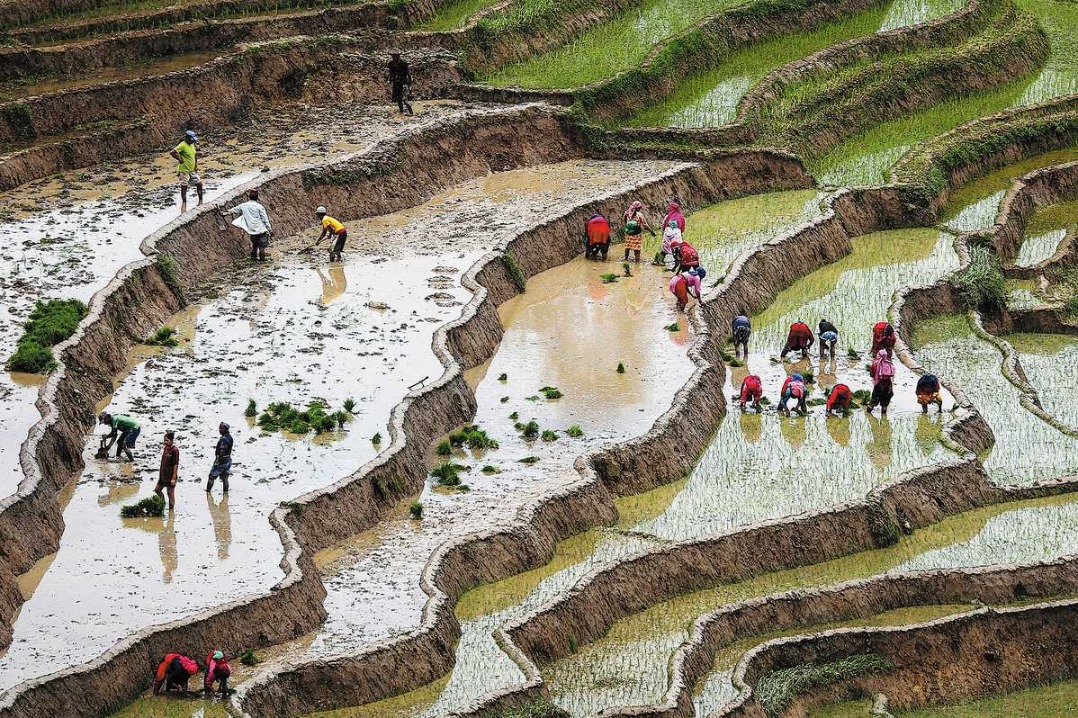Conquering malaria remains a daunting dilemma, but there's hope

The war against malaria has made progress over the past decade, but there is still a long way to go, and Chinese researchers are leading the way on more than one front.
Roughly half of the world's population - 3 billion people - still remains at risk.
In 2006, there were 266 million cases a year leading to 750,000 deaths, according to the World Health Organization.
By 2015, the numbers had diminished, but remained huge - 212 million cases, 429,000 deaths.
And a staggering 90 percent of all cases are in Africa.
Dr Deng Changsheng, manager of the department of science and technology at Guangzhou University of Chinese Medicine, told a group of 27 journalists visiting from Africa recently, that strategy used to cause a major decline in malarial regions of China is showing promise in Africa.
The approach is called fast elimination of malaria by source eradication (FEMSE). It involves mass drug administration (MDA) of artemisinin-based combination therapies (ACT) - in other words, clearing an affected population of the malarial parasites by mass drug administration.
Artemisinin, by the way, is the drug that won 85-year-old Chinese pharmacologist Tu Youyou the 2015 Nobel Prize for Medicine. She had mined the recipe, derived from the sweet wormwood plant, from the annals of ancient Chinese medicine. Today it saves hundreds of thousands of lives a year in Africa alone.
The drug has not been cheap, but Deng said the cost could be brought to as low as $15 per person over the next decade. Today it's about $40, according to Deng.
Thanks to a worldwide push, ACT treatments rose from 187 million in 2010 to 311 million in 2015.
The big fear facing the effort right now is that the parasites are showing signs of developing a resistance to artemisinin, the same way some strains of tuberculosis are shunning off some of modern medicine's most potent antibiotics.
"The spread of artemisinin resistance in Africa would be a major setback in the fight against malaria, as ACT is the only effective and widely used anti-malarial treatment at the moment," writes Professor Arnab Pain of King Abdullah University of Science and Technology in the current issue of the New England Journal of Medicine.
"Therefore it is very important to regularly monitor artemisinin resistance on a worldwide scale," he added.
The study, led by Jun Cao of the Institute for Parasitic Diseases in China, found drug-resistant malarial parasites in a Chinese patient who had been in Equatorial Guinea and returned to China. The ACT therapy, which usually takes three days to rid the patient of the disease, took five days in this case.
This "partial resistance", they said, has been noted in other parts of Southeast Asia, and the great fear is that "partial" morphs into "complete".
"This is one of the great challenges facing us in the fight against malaria," the World Health Organization says on its website.
The holy grail of that fight, of course, remains a vaccine, and The Associated Press reports that three African nations have just been chosen to test the world's first malaria vaccine.
WHO announced Monday that Ghana, Kenya and Malawi will begin piloting an injectable vaccine next year with hundreds of thousands of young children, who have been at highest risk of death.
The vaccine, which has partial effectiveness, has the potential to save tens of thousands of lives if used with existing measures, WHO's regional director for Africa, Dr Matshidiso Moeti, said in a statement. The challenge is whether impoverished countries can deliver the required four doses of the vaccine for each child.
The vaccine will be tested on children 5 to 17 months old to see whether its protective effects shown so far in clinical trials can hold up under real-life conditions. At least 120,000 children in each of the three countries will receive the vaccine, which has taken decades of work and hundreds of millions of dollars to develop.
Kenya, Ghana and Malawi were chosen for the vaccine pilot because all have strong prevention and vaccination programs but continue to have high numbers of malaria cases, WHO said. The countries will deliver the vaccine through their existing vaccination programs.
WHO is hoping to wipe out malaria by 2040, despite the increasing resistance problems to both drugs and insecticides used to kill mosquitoes.
The vaccine was developed by GlaxoSmithKline, and the $49 million for the first phase of the pilot is being funded by the global vaccine alliance GAVI, UNITAID and Global Fund to Fight AIDS, Tuberculosis and Malaria.
Contact the writer at chrisdavis@chinadailyusa.com.
































